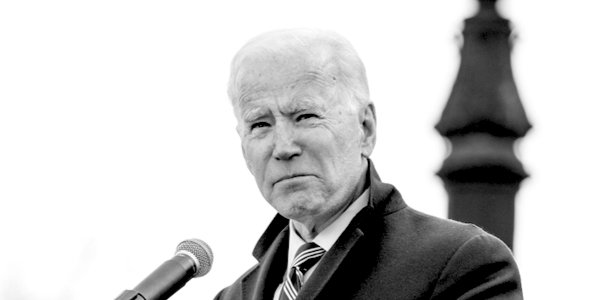WHETHER it’s Joe Biden, Rishi Sunak or Emmanuel Macron, everyone is fed up with the ruling elites. Tolstoy was wrong. It is the unhappy families, the electorates, who are alike.
Our political class are in a funk as they watch their credibility dissolve in popular discontent that grows year by year. How long will it remain containable? The farmers’ revolt against green tyranny in several EU countries is only one symptom of the people’s conviction that democratic politics as they have understood it has escaped their control.
A big part of being fed-up is the unlikelihood of real change resulting from the critical elections due in the United States, Europe and the UK in 2024. Some of the faces may be different afterwards but the people in power in December will probably sound depressingly like those with whom the year began.
President Biden is right to say that ‘our democracy’ is under threat. He means from Trump. In reality, the danger is from bubble politicians like him, which is why the right-wing media attach an ironic ™ to the word ‘democracy’ when he uses it. Elections are supposed to be a safety valve but this invaluable function of democracy becomes nugatory when the basic policies which divide politicians from their electorates remain unchanged.
Populism as defined by the establishment parties is not the enemy of good government; it is the antidote to the deficiencies of the tunnel-vision politics that is overtaking us. Trump, Farage, Marine Le Pen and Geert Wilders terrify the elites not because they are anti-democrats but because they threaten the rule of bloodless bureaucracy.
The mainstream right and left have determined, for example, that we are going to have Net Zero, mass immigration and the continued growth of unaccountable transnational government. None of this was explicitly authorised at any stage by majorities of voters. It grew, unnoticed at first, in the petri dish of academia and gradually infused politics until suddenly it was fully fledged and apparently unassailable policy.
Issues about which people have strong opinions, such as open borders, the normalisation of transgenderism and the colonisation/decolonisation paradigm were settled at the level of governments, and the lobbies they deal with, directly over voters’ heads before most of the public were aware of them.
Reasonable dissent from official policies is sneeringly called populism, code for ignorance, and the political parties which have arisen in response are vilified for their alleged roots in the 1930s. Hence the frenzied efforts to criminalise speech and shut down contrarian voices which undermine the very democracy liberals say they want to save.
Democrats have hit Trump with every dirty trick they can think of to get him off the presidential ballot and there will be more between now and November. The SPD, the socialist party which leads Germany’s coalition government, has floated the idea of outright banning the AfD, ostensibly because it is ‘fascist’ but really because Germans are flocking to support it. French politics was rigged for years against the National Front (now the National Rally) because it speaks for ordinary voters openly despised by the elites.
The left’s strategy in the fight for democracy as they see it is a form of disenfranchisement; if you can’t beat them, ban them – or at least booby-trap the route to power.
The internationalisation of government has stretched the disconnect between voters and their politicians with countries sub-contracting crucial aspects of their national sovereignty to the EU, the UN and its affiliated bodies, the WHO and a host of other unaccountable acronyms that live beyond the reach of the humble voter who is captive to them.
It is dawning on people that achieving even an approximation of Net Zero by the 2050 target will cost trillions that we don’t have and be severely regressive in terms of living standards. Net Zero means the gradual deindustrialisation of Europe including its agriculture and food security. No lesson learned there from the EU’s disastrous dependence on Russian fossil fuels when they were brutally cut off in 2022.
And what happens if, as is likely, Net Zero fails to reach its arbitrary targets; still tighter rationing of resources which were freely available when the century began and greater loss of freedom? People accept such restrictions in wartime because they know wars come to an end and normal life resumes. Climate change is for ever and no sacrifice is beyond the scope of environmental zealotry to wring carbon out of the atmosphere.
And then there is immigration, which no mainstream politician will lift a finger to stop despite constantly restated public opposition to its continuation. Large-scale immigration from different and sometimes hostile cultures, with no requirement to assimilate, has been for decades the biggest single factor in the deliquescence of Old Europe. David Cameron admitted as much a decade ago when he said that multiculturalism, the blueprint for a future tribal culture, has failed.
What we know is that our present political class, who are unanimously committed to both Net Zero and mass immigration whatever the consequences, will not deviate from their chosen policies so long as they retain their grip on power. The only recourse is to replace them and the only available alternative is the populist right.
The mainstream parties have spent decades preaching that populism represents barbarism at the walls of benign liberalism even while that same liberalism – which now calls itself progressive – becomes increasingly illiberal. As the populist parties advance at each election across the EU, it may be their destiny to save corrupted liberalism from itself. Italy seems to be surviving Giorgia Meloni quite comfortably.

